There isn’t much to this film, but it’s important to keep in mind that I’ve been on a run of some really solid films of late, and all things considered this one isn’t half bad. Compared to the average films of its era it’s probably a little bit better than average, but when stacked up against some of my recent entries, it’s a bit lacking The best thing it has going for it is Lilian Gish, but this is not her at her best.
The story is straight-forward. It begins in Russia, where Marfa (Gish) is living with her aunt and uncle. Their only interest in her is financial, as they intend to sell her as a bride to the highest bidder. She wants no part in their business venture, and wishes she could marry Jan, the handsome young man she met a few months back. He’s recently returned from America. Unfortunately, he’s broke, so instead she’s sold to a rather repugnant fellow. The film’s best scene comes when he approaches Marfa as she sits with her friend. She grabs his bottle of vodka and beats him with it before chasing him off. Her facial expressions during this sequence are as good as any I’ve seen in a silent film to date. You can view the scene below.
When the marriage day arrives, Marfa refuses. Next she ends up betrothed to a military official, but she clobbers him and flees the scene. He survives, but before they can find Marfa, she and her family have fled to a nearby port city and boarded a ship bound for America. Who else is onboard? Jan, of course! Her family still wants to profit by selling her off, so when they arrive in the States, they dupe him, leaving him in San Francisco while they head to Los Angeles. He eventually finds out that’s where they went, and heads to L.A. and starts hunting for her in the Russian part of town.
Meanwhile, Jan has again been sold to a bachelor bidder, but escapes. She finds a policeman, but he doesn’t speak Russian and ends up bringing her back to the family. All seems lost once the ceremony is taking place, but Jan shows up just in time. He’s brought the police, who have been cracking down on Russian brides for sale, and the entire corrupt family ends up in jail, leaving Marfa and Jan free to be together.
Again, though this isn’t a bad film, it’s nothing special. I don’t know that I’ll watch it again anytime soon, though I do have it on a DVD, so perhaps one day I’ll revisit it. It’s the first film from William Christy Cabanne that I’ve watched, and while he directed 167 films during a career that spanned 1912 to 1948, this is the only film of his I have on my list to watch. He does have some co-director credits here and there, so I will encounter his work again here and there, most notably on the 1925 blockbuster epic Ben-Hur. Fred Niblo is credited as the director of that film, but Cabanne is one of four others who co-directed, but weren’t credited at the time.
Perhaps someone reading this can recommend a Cabanne film that I should add to my list? I’m always open to suggestions, and I am certain that I’ve missed many important films while compiling my list of films to watch. The list is available to all paid subscribers, by the way. Or, to anyone who asks nicely.
Next I’m watching Shoe Palace Pinkus [1916], directed by Ernst Lubitsch.







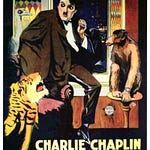
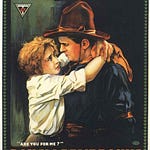
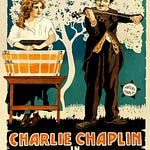


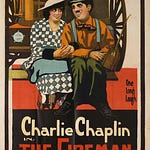

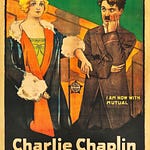
Share this post